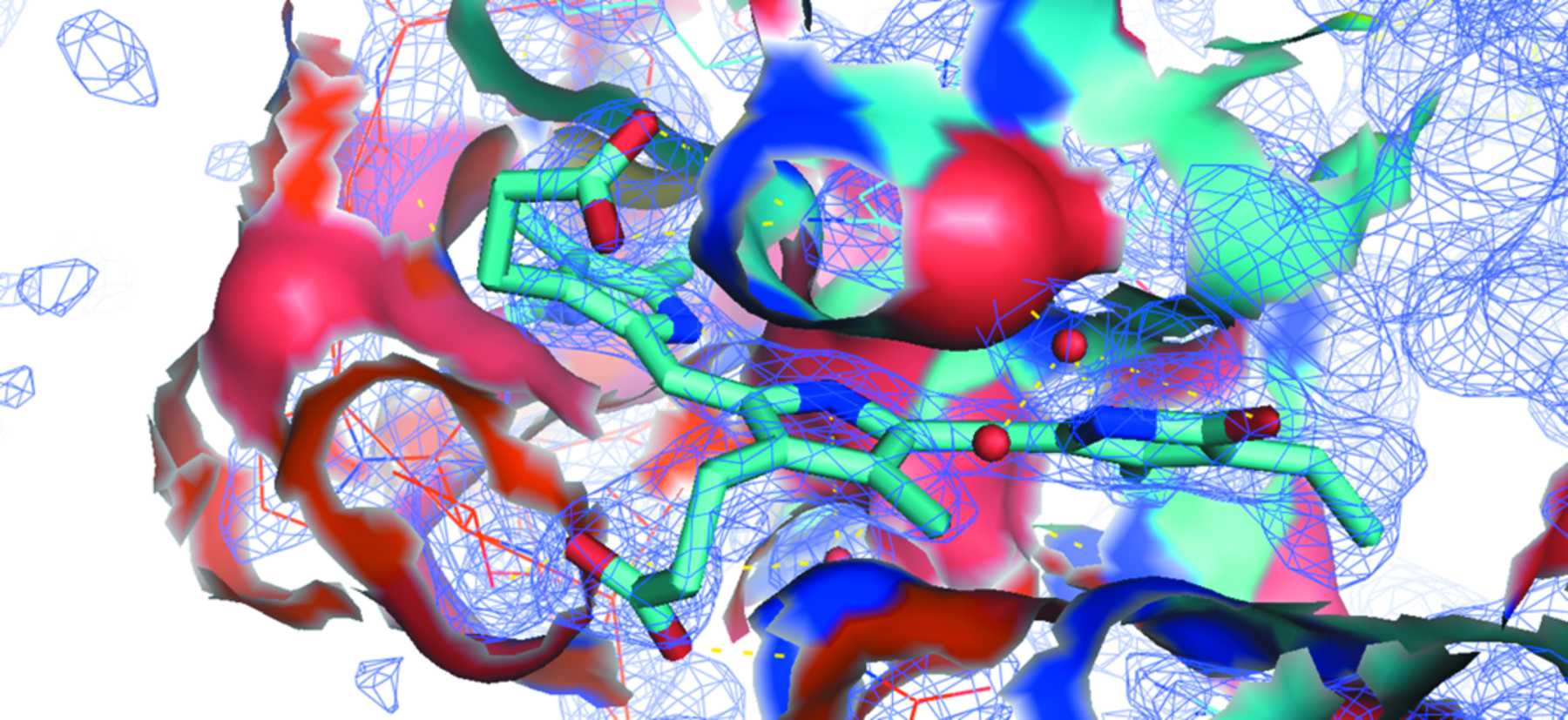Serial femtosecond crystallography of soluble proteins in lipidic cubic phase
Category
Published on
Abstract

Type
journal-article
Author
Raimund Fromme and Andrii Ishchenko and Markus Metz and Shatabdi Roy Chowdhury and Shibom Basu and Sébastien Boutet and Petra Fromme and Thomas A. White and Anton Barty and John C. H. Spence and Uwe Weierstall and Wei Liu and Vadim Cherezov
Citation
Fromme, R. et al., 2015. Serial femtosecond crystallography of soluble proteins in lipidic cubic phase. IUCrJ, 2(5), pp.545–551. Available at: http://dx.doi.org/10.1107/s2052252515013160.
Abstract
Serial femtosecond crystallography (SFX) at X-ray free-electron lasers (XFELs) enables high-resolution protein structure determination using micrometre-sized crystals at room temperature with minimal effects from radiation damage. SFX requires a steady supply of microcrystals intersecting the XFEL beam at random orientations. An LCP–SFX method has recently been introduced in which microcrystals of membrane proteins are grown and delivered for SFX data collection inside a gel-like membrane-mimetic matrix, known as lipidic cubic phase (LCP), using a special LCP microextrusion injector. Here, it is demonstrated that LCP can also be used as a suitable carrier medium for microcrystals of soluble proteins, enabling a dramatic reduction in the amount of crystallized protein required for data collection compared with crystals delivered by liquid injectors. High-quality LCP–SFX data sets were collected for two soluble proteins, lysozyme and phycocyanin, using less than 0.1 mg of each protein.
DOI
Youtube
Funding
NSF-STC Biology with X-ray Lasers (NSF-1231306)



